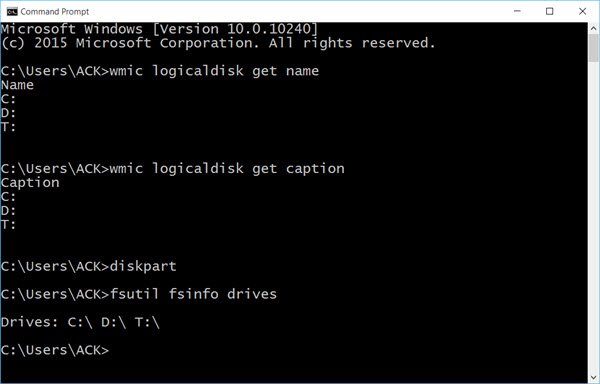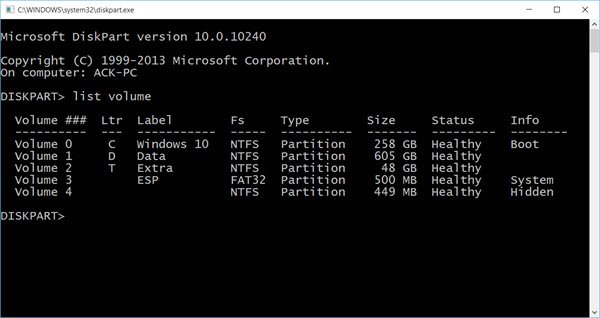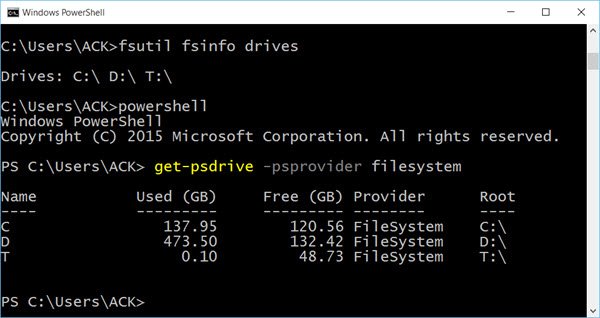If y'all oftentimes operate amongst the Command Prompt or PowerShell, y'all may demand to re-create files from or to an external drive, at such, in addition to many other times, y'all may demand to display the drives inside the console window. In this post, nosotros volition demo y'all how y'all tin listing drives using Command Prompt or PowerShell inwards Windows 10 / 8 / 7.
List Drives using Command Prompt
If y'all demand to merely listing the drives, y'all may role WMIC. Windows Management Instrumentation (WMI) is the infrastructure for administration information in addition to operations on Windows-based operating systems.
Open a ascendance prompt, in addition to type the next command:
wmic logicaldisk become name
Press Enter in addition to y'all volition come across the listing of Drives.
You tin also role the next parameter:
wmic logicaldisk become caption
Using the next volition display Device ID in addition to book mention every bit well:
wmic logicaldisk become deviceid, volumename, description
Windows also includes an additional command-line tool for file, organization in addition to disk management, called Fsutil. This utility helps y'all lits files, alter the brusk mention of a file, detect files past times SID’s (Security Identifier) in addition to perform other complex tasks. You tin also role fsutil to display drives. Use the next command:
fsutil fsinfo drives
It volition demo mapped drives too.
You tin also role diskpart to become a listing of drives along amongst about to a greater extent than details. The Diskpart utility tin create everything that the Disk Management console tin do, in addition to more! It’s invaluable for script writers or anyone who merely prefers working at a ascendance prompt.
Open CMD in addition to type diskpart. Next role the next command:
list volume
You volition come across that the console display the Volume release in addition to letter, label, formatting type, division type, size, condition in addition to other information.
List Drives using PowerShell
To display drives using PowerShell, type powershell inwards the same CMD windows in addition to hitting Enter. This volition opened upwards a PowerShell window.
Now role the next command:
get-psdrive -psprovider filesystem Hope this helps.
Now come across how y'all tin become a list of all Device Drivers using Command Prompt.
Source: https://www.thewindowsclub.com/





comment 0 Comments
more_vert